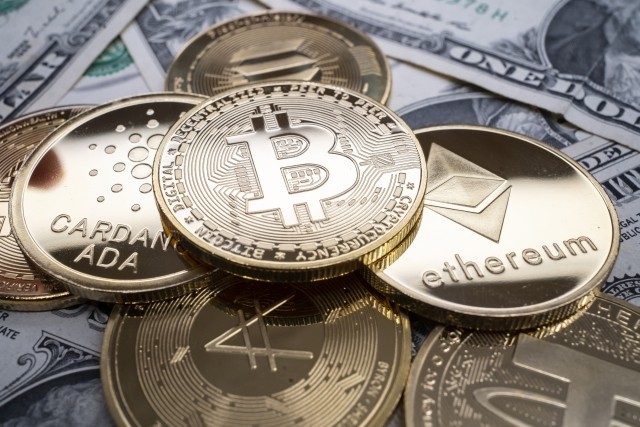Blog
Dialing for Dollars: Taking Stock of The DOJ’s New Whistleblower Program
Smart companies have known for years that they need to treat whistleblower complaints seriously. Unfortunately, the risk in this area is only increasing. In this week’s D&O Notebook, my colleague Walker Newell covers what you need to know about the DOJ’s recently announced corporate whistleblower program. He also reminds management and boards of best practices to ensure that you have appropriate whistleblower policies and procedures given in the current heightened risk environment. –Priya
America has always loved stories about people who made it big. Abraham Lincoln grew up in a log cabin; 200 years later, he got his own biopic starring Daniel Day-Lewis. Oprah was born into poverty in rural Mississippi; through gumption and grit, she became the queen of media.
There are many ways to make it big in today’s United States. Today, I am going to show you a lesser-known path to generational wealth. If you follow these easy steps, you can winter in Rio, summer in the Hamptons, and hire Ice Spice to perform at your daughter’s Sweet 16.
Step 1: Get a job at a large multinational company.
- Make sure it is a job helping the company grow its business in developing countries.
- Make sure these are developing countries where state-owned enterprises play a central role in the economy.
Step 2: Learn about a scheme by executives in your company to bribe state actors through cash payments, gifts, or entertainment in exchange for lucrative contracts in developing countries.
- Make sure you are not the key architect of the bribery scheme.
- Make sure you have smoking gun evidence about the bribery scheme.
Step 3: File a detailed whistleblower report with the Securities and Exchange Commission (SEC).
- Make sure you hire a lawyer with intimate knowledge of the SEC’s whistleblower program.
- Make sure that you file your detailed report before the SEC finds out about the scheme some other way or provide smoking gun evidence that will be central to the government’s case.
- Make sure to lead the SEC directly to the smoking gun evidence.
Step 4: Dive into a pool of money like Scrooge McDuck.
This seems to have been the path taken by an unnamed individual who received a whopping $279 million SEC whistleblower award in 2023. Two other recent whistleblowers were respectively awarded $114 million and $110 million.
Whistleblower Fantasy vs. Whistleblower Reality
Let’s take a step back. I hope you know that trying to become a professional whistleblower is a very silly idea. In all seriousness, you want to stay far away from any suggestion of impropriety and report any concerns immediately through appropriate channels.
For every whistleblower who joins the yachting set, there are hundreds of folks who have had their careers upended or worse by being in close proximity to misconduct.
The point of my tongue-in-cheek exercise here is: Big money talks. Since its inception, the SEC has awarded about $2 billion to about 400 individual whistleblowers.
The big awards get big headlines. The big headlines cause more corporate insiders to think about blowing the whistle, leading to more big awards, leading to more big headlines, and creating a virtuous cycle of big cases for SEC Enforcement.
Given the runaway success of the almost 15-year-old SEC whistleblower program, it was interesting that the Department of Justice (DOJ) hadn’t implemented its own dedicated program–until now.
In March 2024, the DOJ announced plans for a “whistleblower rewards program,” to be kicked off by “a 90-day sprint to develop and implement a pilot program, with a formal start date later this year.”
For many years, savvy boards and management teams have been focused on implementing strong internal whistleblower policies, procedures, and controls. The DOJ’s new program underscores that this will continue to be an area of vital importance for corporations.
Let’s take a look at the DOJ’s planned new program and how it adds to the existing federal whistleblower framework. Regardless of the new program’s success, it’s a timely reminder to scrub your whistleblower policies and procedures to make sure they are highly effective in theory and in practice.
Knock, Knock, Knockin’ at DOJ’s Door
In front of a rapt crowd of sweaty white-collar lawyers in San Francisco last month, two senior officials announced the DOJ’s new whistleblower pilot program.
Here are the key features the DOJ shared (the program is still under development):
- If an individual helps the DOJ discover significant corporate or financial misconduct—otherwise unknown to the government—then the individual might receive part of the forfeiture (a monetary remedy often sought by the DOJ.
- The DOJ would offer payments:
- Only after all victims have been properly compensated
- Only to those who submit truthful information not already known to the government
- Only to those not involved in the criminal activity itself and
- Only in cases where there isn’t another applicable whistleblower program.
- The DOJ will accept information about violations of any federal law but will be focused on
- Criminal abuses of the U.S. financial system
- Foreign corruption cases outside the jurisdiction of the SEC
- Domestic corruption cases, especially involving illegal corporate payments to government officials.
- The DOJ will establish some undefined monetary threshold before a whistleblower is eligible for a reward.
The DOJ gave a few interesting examples of the types of fact patterns that would be impacted by the new program:
The DOJ concluded with some eerie foreshadowing, which may sound familiar to fans of Breaking Bad: “[K]nock on our door before we knock on yours.”
A few observations:
- The DOJ is not trying to horn in on other federal whistleblower programs. If a whistleblower has great actionable information related to securities fraud, they will still get paid by the SEC.
- Whistleblowers may face difficult choices and significant risks. Those “involved in the criminal activity” will not be eligible for payments. But what exactly does this mean? The threat of criminal prosecution may scare off some potential whistleblowers.
- Savvy whistleblowers will submit information to all takers. Given the wide breadth of the DOJ’s authority, it will generally make sense to always make parallel civil and criminal whistleblower submissions. If there’s a chance that the SEC will not bring civil securities fraud charges, but the DOJ will bring criminal wire fraud charges, a smart whistleblower lawyer will want to make sure all available avenues for recovery are open.
- The SEC has received tens of thousands of whistleblower tips since the program’s inception. Only about 400 of these have resulted in whistleblower awards. To put it diplomatically, not every tipster is a $279 million woman or man. To put it more pointedly, most whistleblower reports are not very useful to the government.
- Investigative resources (i.e., smart humans) are very valuable to the DOJ. If the DOJ receives a fraction of the flood of SEC complaints, some of those scarce resources are going to be diverted to kissing a ton of whistleblower frogs to get to the rare whistleblower princess.
We should learn more as the DOJ develops the program in the coming months.
Good Whistleblower Hygiene
Strong whistleblower policies and procedures are important. If potential legal violations are happening at your company, you want the right people to know about it as early as possible.
If they don’t, the company can’t take appropriate action, issues will fester and metastasize, and litigation and regulatory risks will increase. You will also lose any benefit that you might receive from self-reporting to the government in appropriate cases.
Finally, you need to make sure that you are not seen by the government as chilling whistleblower reporting in any way.
Also, not all employees are looking for a huge whistleblower payday. Many just want their companies to succeed. Implementing a strong whistleblower program lets your employees participate in keeping the company on the straight and narrow.
Here are some steps you can take:
- Repeatedly and visibly strike a robust tone at the top, demonstrating that senior management encourages employees to come forward with concerns and that retaliation will not be tolerated.
- Communicate your strong whistleblower reporting procedures clearly and repeatedly. This should include a hotline and ideally a pathway leading directly to the audit committee.
- Routinely and effectively train your employees on the whistleblower policy. Your policies, confidentiality agreements, and severance agreements should incorporate learnings from the SEC’s recent actions so that you are not accused of chilling whistleblower activity.
- For credible complaints, ensure that an adequately resourced team is tasked with investigating them. It will be appropriate to address some complaints internally. Other complaints—particularly those involving senior management or a high risk of significant regulatory action if substantiated—may require the involvement of outside counsel.
Fraud can create immense and unnecessary headwinds for a business. If you ensure that you have robust and well-functioning whistleblower procedures, you’ll have a better chance of rooting out misconduct at an early stage—or at least minimizing the blast radius if the government knocks on your door.
Author
Table of Contents











